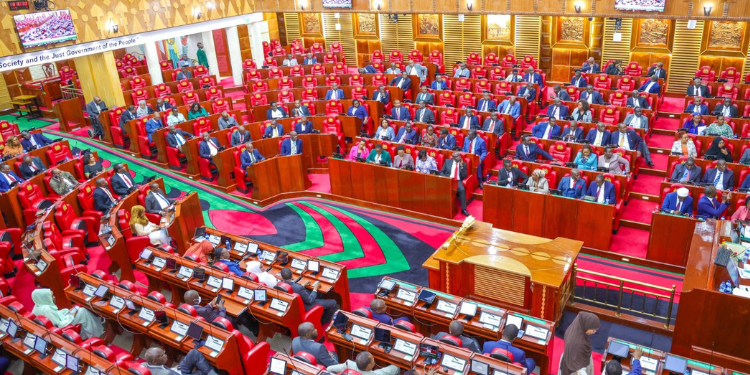Foreign companies operating in Kenya could soon face new requirements compelling them to source more goods, services, and labor locally or risk paying hefty penalties.
The Local Content Bill, 2025, published in the Kenya Gazette Supplement No. 167 and tabled before Parliament in October 2025, aims to increase the use of Kenyan products, boost local industries, and ensure Kenyans benefit more from economic activities.
“The principal object of the Bill is to create a framework to regulate local content in Kenya. Currently, the lack of such a framework has inhibited growth in key sectors. Companies incorporated outside Kenya procure their goods, services, supplies, and workforce from other foreign companies.
This has resulted in unfair business practices. Such practices have rendered local businesses uncompetitive,” reads part of the bill.
Foreign Companies to Face Hefty Penalty
The proponents of the bill argue that the investments by foreign companies in Kenya have had a minimal positive economic effect on the country due to profit repatriation.
As Kenya continues to grapple with youth unemployment, the bill emphasizes the need for a legal framework to be established that fosters job creation and ensures foreign investments in Kenya generate employment opportunities for the country’s youth.
Also Read: Kenya Airways and Aga Khan University Hospital Partner to Strengthen Medical Travel in Africa
If enacted, the Bill will introduce binding local content quotas across various sectors, requiring businesses to purchase and hire locally.
Foreign companies that fail to comply could be fined not less than KSh 100 million, while their chief executives could face imprisonment for at least one year.
Content in the Bill
According to the Bill, a foreign company is defined as one incorporated outside Kenya or whose majority shareholding and control are vested in non-Kenyan citizens.
Such companies will be required to source at least 60 percent of their goods and services, including financial, insurance, construction, transport, and warehousing, from Kenyan suppliers.
Additionally, foreign firms that depend on agricultural raw materials for their operations must procure all their produce from Kenyan farmers.
Also Read: Inside KRA’s New Digital Tax Proposals Targeting ChatGPT, Netflix and Other Tech Giants
The proposed law also stipulates that at least 80 percent of the workforce in such companies must be Kenyan citizens, including in management and supervisory positions.
In a statement outlining the purpose of the law, the Bill notes that it aims to “provide a framework to regulate local content in Kenya; to promote the local industry; to provide for the sourcing of locally produced goods and services; and for connected purposes.”
The Bill’s broader objectives include promoting industrial growth, strengthening the agricultural sector, ensuring fair labor practices, and fostering economic independence through homegrown production. It also empowers the Cabinet Secretary for Trade to set detailed regulations to enforce the local content quotas and standards within one year of the law coming into effect.
Follow our WhatsApp Channel and X Account for real-time news updates.





















































![Senator Allan Chesang And Chanelle Kittony Wed In A Colourful Ceremony [Photos] Trans Nzoia Senator Allan Chesang With Channelle Kittony/Oscar Sudi]( https://thekenyatimescdn-ese7d3e7ghdnbfa9.z01.azurefd.net/prodimages/uploads/2025/11/Trans-Nzoia-Senator-Allan-Chesang-with-Channelle-KittonyOscar-Sudi-360x180.png)





















